- Home
- Alison Kent
The Sweetness of Honey (A Hope Springs Novel Book 3) Page 12
The Sweetness of Honey (A Hope Springs Novel Book 3) Read online
Page 12
“How do you know Oliver?” His mother switched her handbag from one arm to the other, a silver cuff bracelet circling her wrist catching the light. “I can’t imagine him coming all this way to buy produce.”
Even though you came all this way to find out if he had? “I own the property across Three Wishes Road from the Caffey-Gatlin Academy. We met there one morning last month.” And why in the world was she offering up so much information?
“That arts center,” Merrilee began, waving her hand as if even the words were pesky flies, “is going to be the ruin of our family.”
Then before she could add to the insult, Indiana interrupted to ask, “How so?”
Oliver’s mother had been absently looking around the office, but her head came up sharply at that. “The very fact that you have to ask . . . He’s there, even today, fiddling with their money when he should be handling the finances for one, if not several, of the companies who have courted him. He has no business wasting his time with this nonprofit. Just like you have no business keeping company with my son.”
Keeping company? What? Was that like cavorting? Carousing? Canoodling? “Like I said, we’re just friends.”
“Were you aware that Oliver graduated cum laude from Rice University? That he was offered a position at one of Houston’s most prestigious investment firms before he had his diploma in hand?”
“No. I wasn’t aware.” And even with what little she knew of Oliver, his credentials didn’t surprise her. “But really, as impressive as those details are, they have nothing to do with me.”
Merrilee pulled herself upright, her handbag close to her body, one foot turned out from the other in a stance that spoke of dance lessons and debutante balls. “Those details, as you call them, have everything to do with you.”
“Mrs. Gatlin, please trust me when I say I have absolutely no designs on your son’s name or his social standing or his obvious wealth. He’s been spending time at the arts center, and that makes us neighbors in a way. And we’re friends. We had breakfast one morning. I saw him on Halloween,” she said, hoping the heat of the memory didn’t show in her face. “But I saw a lot of other friends, too. Friends I’ve been known to share breakfast with. Friends with equally impressive credentials.”
And it struck her then that Hope Springs was about friendship as much as it was about family. Her friends in Buda were for the most part connected to IJK Gardens—either employees, vendors from whom she bought supplies, or the artisans who sold their wares in her store. That didn’t make her relationships with them stilted, or awkward, but it did have talk turning to business—and staying on business—almost every time.
In Hope Springs, talk of IJK Gardens, as well as that of Keller Construction and Patchwork Moon and Two Owls Café and the Caffey-Gatlin Academy, was peppered into conversations about family happenings and vacation plans and well-loved books. She liked that. No, she’d needed that. But where Oliver fit in . . .
“Then I suggest you set your sights on those friends and leave Oliver to his.”
Okay. This was getting ridiculous. “Who Oliver spends his time with is really none of my business either.”
“Either?” The word hung in the air, a gauntlet. “Was that directed at me?”
A worthy adversary, this one. “Oliver’s thirty-two years old. I can’t imagine you trying to run his life.”
Merrilee gave a snorting sort of sound. “I suppose you’ll be there at this café for Thanksgiving.”
This really is killing her, isn’t it? “I will. And I’m very happy Oliver’s decided to join us.”
“Of course you are. Who cares about his abandoning years of family tradition?”
Huh. She hadn’t been aware he’d had other plans. “Maybe he’s decided it’s time to start a tradition of his own.”
“I’m sure he’s decided nothing of the sort. All of this newness will wear off soon enough and he’ll come back to where he belongs.”
Really? Did the woman not realize her son was an adult? “Well, then. Thanks for stopping by.” Merrilee stiffened at the obvious dismissal, and Indiana found herself adding, “Unless there was something else?”
“No. I’ve learned all that I need to,” the older woman said before she turned and left. Just like that. Not another word.
And that was okay with Indiana. In fact, she’d be fine with never speaking to Merrilee Gatlin again.
“I learned something about you today,” Indiana said later that afternoon, as Oliver pulled open the back door to the Caffey-Gatlin Academy at her knock.
Rather than fly down the freeway and demand he explain his interference, she’d waited a whole hour after his mother’s departure before making the drive to Hope Springs. It hadn’t been an easy delay to endure, but work had called, and the stay had given her time to calm down.
And boy, had she needed to calm down.
How dare the woman barge in and be so incredibly insulting? It would be one thing if they shared a history and she’d disappointed Mrs. Gatlin somehow. But they’d never even met, meaning Oliver’s mother was judging her for no reason but snobbery.
Now that she was here, she didn’t know if she was more angry with his mother than she was upset with him. Then there was the very real possibility her feelings had been hurt by Merrilee Gatlin’s assertion that Oliver was doing no more than playing with her.
That would mean she didn’t matter to him at all.
“Good afternoon, Indiana,” he said, stepping back and inviting her into what she guessed was now the center’s break room or staff lounge, but had once been the kitchen for the original house. “And what exactly is it you’ve learned?”
“You don’t take no for an answer,” she said, having brushed by and turned back to face him. And oh but it was good to see him, to be in the same room with him, talking to him in person rather than on the phone, and without his car door and hers keeping them apart. If she took a step toward him, they’d be close enough to touch, but she stayed where she was, her fingers tingling, her pulse racing, her chest tight.
“You’ll have to be more specific,” he said, gesturing for her to take a chair at the table where he’d obviously been working. Spreadsheets and financial statements and invoices littered the surface, along with a very fancy tablet PC. Nothing but the best for the Gatlins. And since, according to his mother, she wasn’t the best . . .
“You asked if I wanted you to vet the investigator I hired. Or if I wanted you to recommend someone. I told you I didn’t need you to do either,” she said, and stopped, because he hadn’t done either, and nowhere in that initial conversation had she asked him not to hire an investigator of his own.
“And I respected your wishes,” he replied, then gave a huff, followed by a knowing scowl. “You talked to my mother.”
To was the right word, because she certainly hadn’t talked with Merrilee Gatlin. “She came to see me,” Indiana said, sitting when it was obvious he wasn’t going to until she did.
He stopped halfway to his chair, as if fearing it had just been pulled out from under him, then sat, and asked, “To see you? Where?”
“At my office,” she said, her keys in her hands, her knees pressed close together. “In Buda.”
“My mother drove to Buda?”
“Unless she has a driver, or took a cab, or has wings,” she added, not sure why she was being sarcastic. Unless it was a defense to stave off a nervousness she didn’t understand. He was so polite, his manners impeccable. But all she could think about was having his hand between her legs, his mouth on hers, the heat between them.
“She has a driver,” was all he said, frowning, and ignoring the rest of her offered options.
And her original point. “You hired an investigator when I asked you not to.”
“No,” he said, crossing his legs, then picking up the mechanical pencil he’d left with a legal pad o
n the table. “You told me you didn’t need me to vet the one you had hired. You never asked me not to hire one of my own.”
She hated having her own logic, not to mention the truth, used against her. Rubbing her hands down her thighs, she asked, “Is this a spirit of the law versus the letter of the law thing?”
He shrugged, flicked his thumb over the pencil’s eraser end. “I wanted to make sure you had the best possible chance at finding your brother.”
Why? was what she wanted to ask, but instead she came out with, “And your investigator has resources Kaylie’s does not?”
“I don’t know anything about Kaylie’s investigator,” he said, finally looking at her, his gaze sharp and focused. “You didn’t want me to look into him for you.”
Oh, but his being right was frustrating. Even more so than dealing with Tennessee. “I don’t appreciate having to hear about you hiring an investigator from your mother. You should’ve told me yourself.”
“You’re right, and I apologize. It’s just that I’ve seen Derek work magic, and I thought—”
“It’s not your place to think,” she said, and stopped, holding up both hands. “I’m sorry. I didn’t mean that. It’s just . . . I need to do this myself. Finding Dakota.”
He nodded, considering her closely before asking, “Do you want me to call him off?”
Oh, that’s hardly fair. “If I say no, does it make me a hypocrite?”
“Not at all,” he said, pushing up from his chair and walking to the counter to brew a latte. “You care about your brother. Finding him is more important than how it gets done. But I’d like to think you would’ve come to me eventually if you did need the help.”
She looked down at her hands, at her keys, at the marks the teeth had made in her palm. “It’s hard for me. To ask. I’ve been doing things on my own so long.”
He held her gaze, the espresso machine hissing behind him, hot coffee streaming from the spout, neither one of them moving, or doing more than breathing. After a moment, he broke the strange tension, gesturing toward her with a second cup. She nodded, and he went back to the task, saying, “I get that. But that’s what friends are for.”
So was that what they were? Friends? Sure. She could work with that. “It’s weird, but since Tennessee got in touch back in March, I’ve made more here in Hope Springs than I’ve had since college. Kaylie and Luna. Angelo. Mitch and Dolly. Will. You.”
He brought both coffees to the table and sat, crossing his legs again and lifting his mug as if he had all the time in the world for this conversation. As if he was used to being on no clock but his own. As if he was, indeed, Merrilee Gatlin’s son.
She thought back to the reason she was here. “Your mother basically told me to leave you to your friends and go play with my own.”
“Somehow I don’t see you as the type to pay a lot of attention to my mother,” he said, hiding the tic in his jaw behind his mug as he drank.
He got points for not being unaffected. “Thank you. For hiring the investigator. You shouldn’t have, but thank you.”
He set his mug on the table, held it by the rim with one large hand, turned it in a circle as if the motion helped center his thoughts. As if his thoughts were weighing heavier than he liked. As if that heaviness wasn’t easy to shake.
Then he looked up and caught her gaze. “Would you like to get dinner one night? Maybe see a show?”
His words were almost an echo of Will’s, yet the tone, the intent, none of that sounded familiar. She was glad, because she didn’t want to make the mistake of conflating the two. They were not the same at all.
She would wonder later whether asking her out was what had given him pause, but at the moment, the only thing she cared about was that he had. And it was hard not to split her face grinning when she asked, “When?”
“Saturday night? If you’re not busy.”
“Not at all,” she said. “It’s a date.”
Because she didn’t question for a single moment that it was.
CHAPTER ELEVEN
Deciding where to take Indiana wasn’t hard at all, though Oliver hadn’t realized the timing was perfect until the reminder of his father’s showing popped up on the calendar synced to his phone. He’d been looking forward to going, but not having to go alone was a plus. Especially since he’d get to introduce his father to Indiana, and show her off in return.
Strangely, he was anxious to do both. He wanted Indy to see that his father, though often distant and somewhat neglectful, was never purposefully rude the way his mother was. And he wanted his father to know Indiana for no reason but that she was who she was, a free spirit. There wasn’t a doubt in his mind that his father would approve of her at first sight.
That sounded like he needed to have his choice of companions Gatlin rubber-stamped, but such wasn’t the case at all. Indiana’s personality was just impossible not to enjoy, and he wanted to spread her around—even while a part of him wanted to keep her all to himself. That part was giving him trouble tonight, because she looked like an absolute dream.
He was so used to her boots and her sundresses and her T-shirts and jeans that having her open her cottage door wearing heels and a long-sleeved, body-hugging, knee-length black dress left him speechless. Then she turned in a circle, giving him the full effect of the low-scooped back, and he thought he might’ve drooled. He knew he’d felt his blood stirring, and he’d had to shift his stance to keep it to himself.
“Wow.” It was all he was able to get out. “You are absolutely stunning.”
He thought she might’ve blushed when she asked, “Didn’t know I had it in me, did you?”
“Honestly?”
She stepped onto the porch and laughed while pulling the door closed behind her. “I don’t need that much honesty, thanks.”
“I’m not even sure what I expected.” Being that honest seemed safe enough. “Especially because you told me to pick you up here. I haven’t kept up with your progress on the cottage. I wasn’t sure if you were still roughing it.”
“I’ve got electricity, hot and cold running water, and enough lights and mirrors to see what I’m doing,” she said as she walked down the stairs.
Whatever she’d been doing, she’d done every bit of it right. He offered her his hand. She took it, then made her way gingerly across the uneven ground to his car. Getting in, she couldn’t help but flash a whole lot of leg, and as he shut her door and circled to his side, he told himself to back off. This date was not about getting her out of her dress, though as he drove, and as she crossed her legs and her skirt rode high, he knew he’d be reminding himself of that several times before he brought her home.
The gallery was small, off the beaten path even for the Hope Springs warehouse district, and the last place he imagined anyone expected to see Orville Gatlin’s metalwork on display. That was the thing about his father that probably irritated his mother most. She hated seeing him stoop—as she called it—to such a pedestrian level when he had the attention of critics worldwide. As if only their opinions held sway, and those of the audience who’d launched his career were now moot.
But this was Orville in his wheelhouse; he lacked every bit of pretension his wife wore like social armor. He knew himself as an artist. He wanted his work to live in the eye of the beholder. Art was an experience, he said, and no two people would have the same.
Judging by Indiana’s expression, what she was seeing was not what she’d expected. Oliver wasn’t surprised. His father’s pieces were not what usually came to mind when picturing metal sculptures. Most, in fact, didn’t appear to be constructed out of metal at all, but flower petals, and feathers, spiderwebs, and cat whiskers, and lace.
But as fragile and ethereal as they seemed, they were unaccountably sturdy, especially for their size, and took hours of patience to solder and weld, which Oliver well knew. As a child, he’d sat and watch
ed, falling asleep only to wake and find his father still engrossed in perfecting the same foot-long strand.
“And what about you?”
Her question rolled out of nowhere and into his musings, so he took in her unbound cloud of hair and dark shining eyes and asked, “What about me?”
She looked back at the piece in front of them, gesturing with one hand. The motion had the fabric of her dress clinging, and had Oliver appreciating that it did. “What is your artistic talent, because I can’t imagine you didn’t inherit some of this.”
“This fascination with metal? No. And working in 3-D isn’t my thing, no matter the medium. But I do paint. Or I used to paint. I haven’t in a while,” he said, and left it at that. She didn’t need to know why he’d stopped, when, the connection between the two.
But instead of pushing for an answer to that, she asked, “What about music?”
“Do I have any musical talent? No.” Though he had enough taste to applaud the string quartet playing in the adjoining room. “But I grew up with Oscar, so I have a great respect for the art form.”
Thankfully she didn’t angle for any revelations about his brother, or drop into sympathy mode. She simply asked, “And your mother?”
“What about her?”
She shrugged, reached out, and tugged on his tie. “I’m just trying to decide if she really is your mother, or if you’re only your father’s son.”
He laughed at that. “I can be a bit of a snob. I guess I get that from her.”
“Oh, yeah?” She turned, talking as she walked away. “What are you a snob about?”
He followed, wondering where to begin. “Clothes. Cars. I like to fly first class. Food. But I fell off the truck somewhere, because I have totally lowbrow tastes in movies and TV.”
She stopped and looked back. “So you’re human.”
“I wouldn’t be half this much fun if I wasn’t,” he said, taking her arm and pulling her aside to allow another couple to pass.

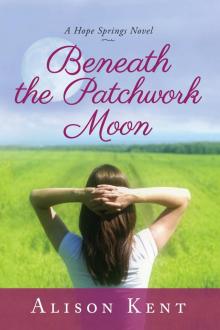 Beneath the Patchwork Moon (A Hope Springs Novel Book 2)
Beneath the Patchwork Moon (A Hope Springs Novel Book 2)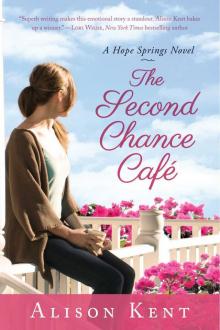 The Second Chance Café (A Hope Springs Novel Book 1)
The Second Chance Café (A Hope Springs Novel Book 1)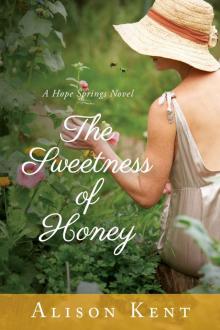 The Sweetness of Honey (A Hope Springs Novel Book 3)
The Sweetness of Honey (A Hope Springs Novel Book 3)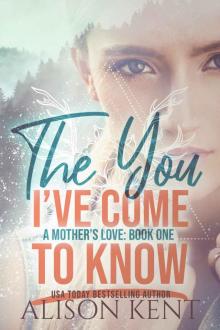 The You I've Come To Know (A Mother's Love Book 1)
The You I've Come To Know (A Mother's Love Book 1)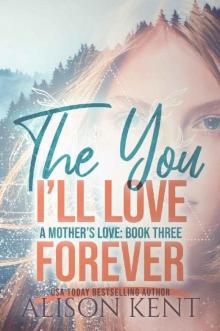 The You I'll Love Forever
The You I'll Love Forever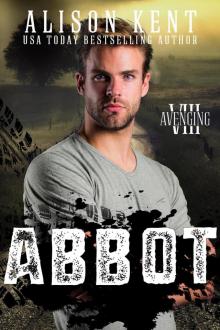 Abbot
Abbot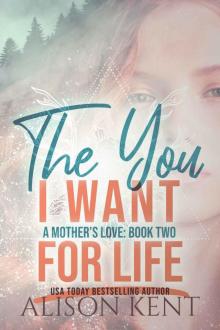 The You I Want For Life (A Mother's Love Book 2)
The You I Want For Life (A Mother's Love Book 2)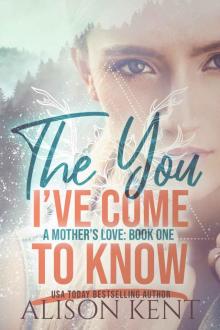 The You I've Come to Know
The You I've Come to Know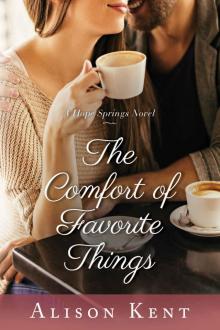 The Comfort of Favorite Things (A Hope Springs Novel Book 5)
The Comfort of Favorite Things (A Hope Springs Novel Book 5)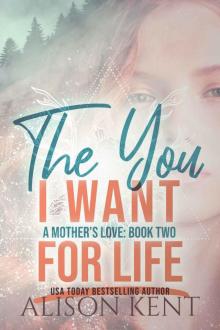 The You I Want for Life
The You I Want for Life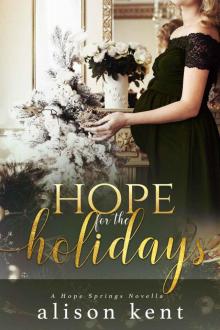 Hope for the Holidays: a Christmas novella (A Hope Springs Novel Book 6)
Hope for the Holidays: a Christmas novella (A Hope Springs Novel Book 6)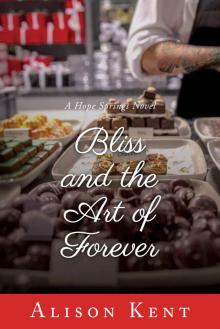 Bliss and the Art of Forever (A Hope Springs Novel Book 4)
Bliss and the Art of Forever (A Hope Springs Novel Book 4)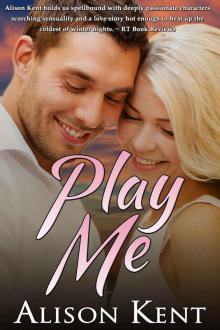 Play Me (Barnes Brothers Book 2)
Play Me (Barnes Brothers Book 2)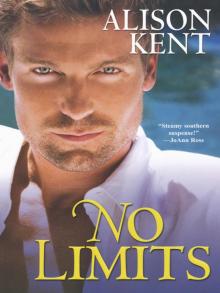 No Limits
No Limits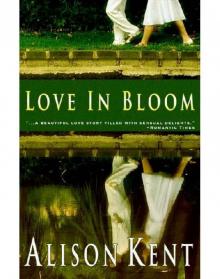 Love in Bloom
Love in Bloom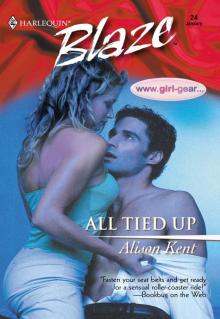 All Tied Up
All Tied Up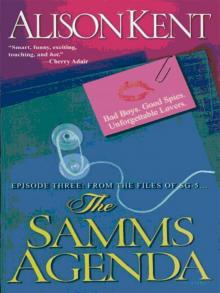 The Samms Agenda
The Samms Agenda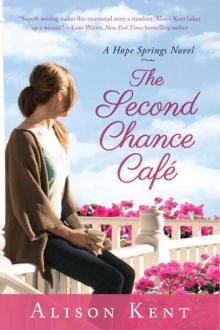 The Second Chance Café
The Second Chance Café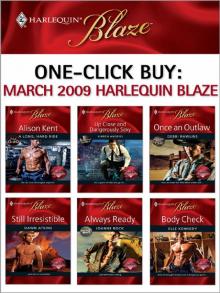 One-Click Buy: March 2009 Harlequin Blaze
One-Click Buy: March 2009 Harlequin Blaze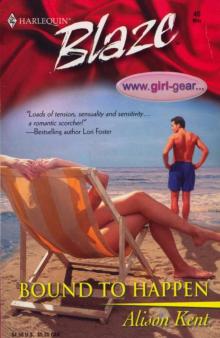 BOUND TO HAPPEN
BOUND TO HAPPEN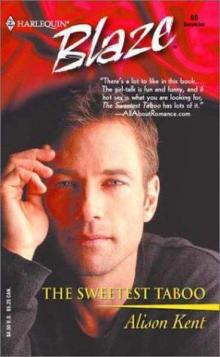 The Sweetest Taboo
The Sweetest Taboo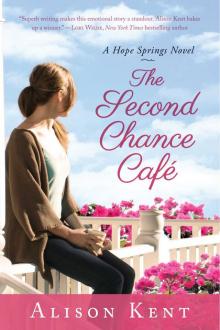 The Second Chance Café (A Hope Springs Novel)
The Second Chance Café (A Hope Springs Novel)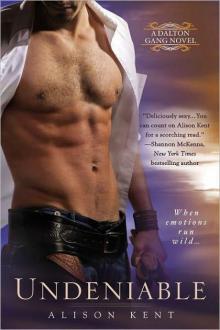 Undeniable
Undeniable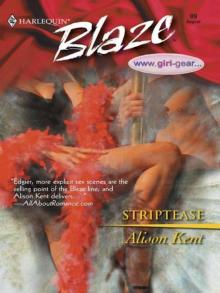 Striptease
Striptease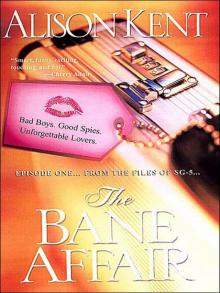 The Bane Affair
The Bane Affair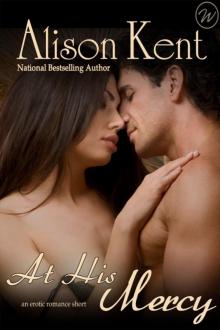 At His Mercy
At His Mercy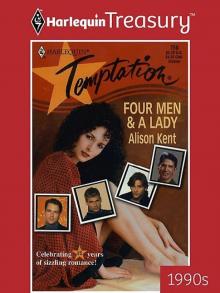 Four Men & A Lady
Four Men & A Lady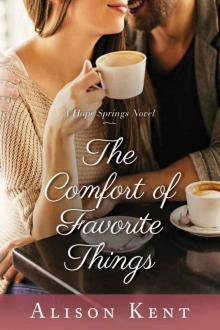 The Comfort of Favorite Things (A Hope Springs Novel)
The Comfort of Favorite Things (A Hope Springs Novel)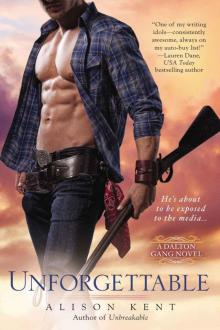 Unforgettable (The Dalton Gang #3)
Unforgettable (The Dalton Gang #3)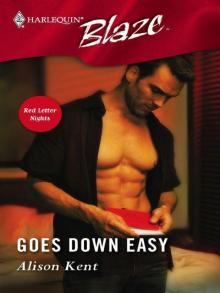 Goes down easy: Roped into romance
Goes down easy: Roped into romance Holiday Kisses: A Rare GiftMistletoe and MargaritasIt's Not Christmas Without YouThis Time Next Year
Holiday Kisses: A Rare GiftMistletoe and MargaritasIt's Not Christmas Without YouThis Time Next Year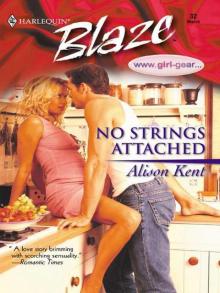 No strings attached
No strings attached Playing Love's Odds (A Classic Sexy Romantic Suspense)
Playing Love's Odds (A Classic Sexy Romantic Suspense)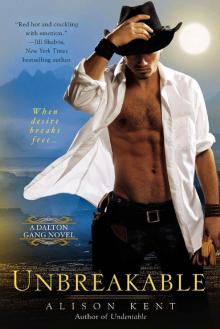 Unbreakable
Unbreakable Red Hot Holiday Bundle
Red Hot Holiday Bundle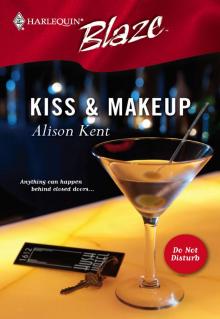 Kiss & Makeup
Kiss & Makeup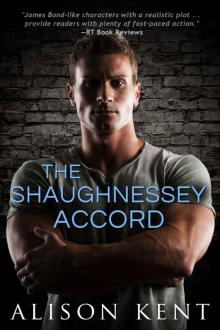 The Shaughnessey Accord
The Shaughnessey Accord Larger Than Life
Larger Than Life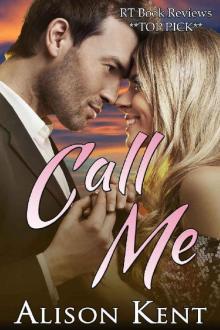 Call Me: sold live on CBS 48 Hours (Barnes Brothers Book 1)
Call Me: sold live on CBS 48 Hours (Barnes Brothers Book 1)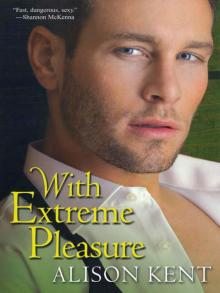 With Extreme Pleasure
With Extreme Pleasure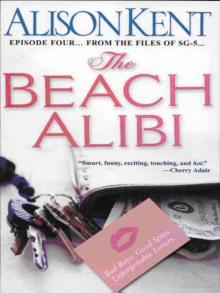 The Beach Alibi
The Beach Alibi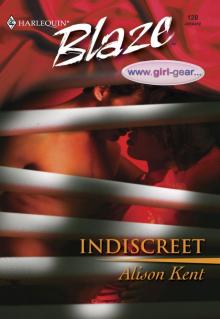 Indiscreet
Indiscreet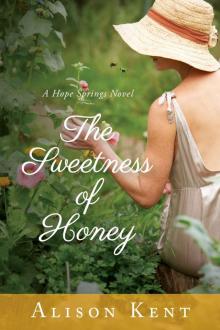 The Sweetness of Honey (A Hope Springs Novel)
The Sweetness of Honey (A Hope Springs Novel)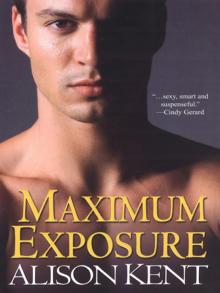 Maximum Exposure
Maximum Exposure